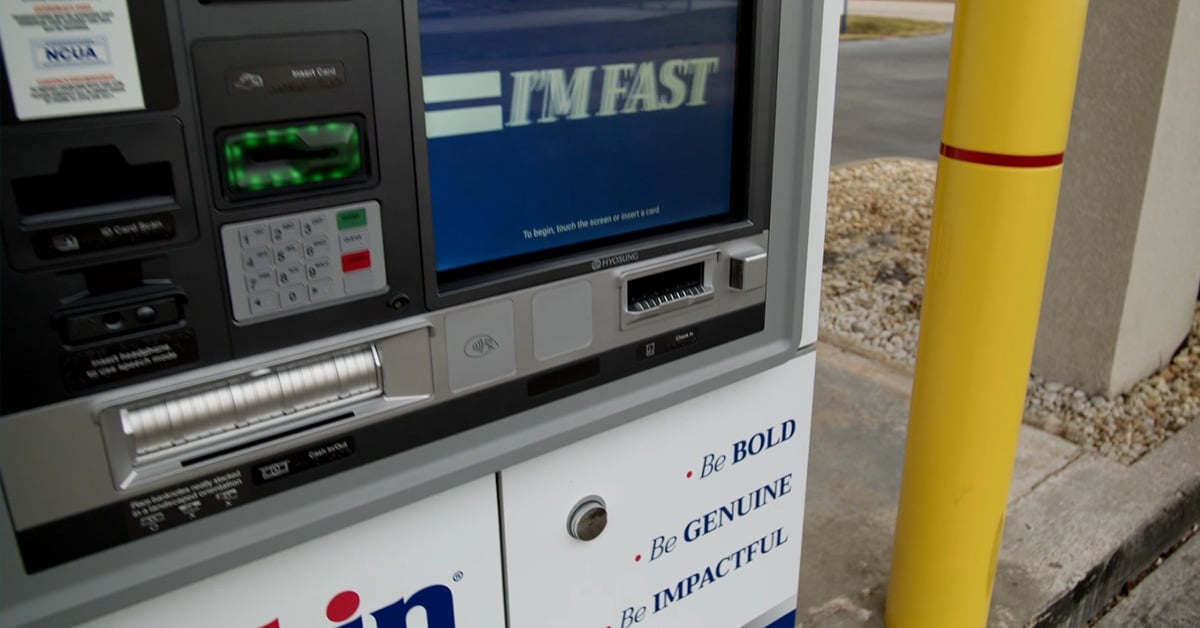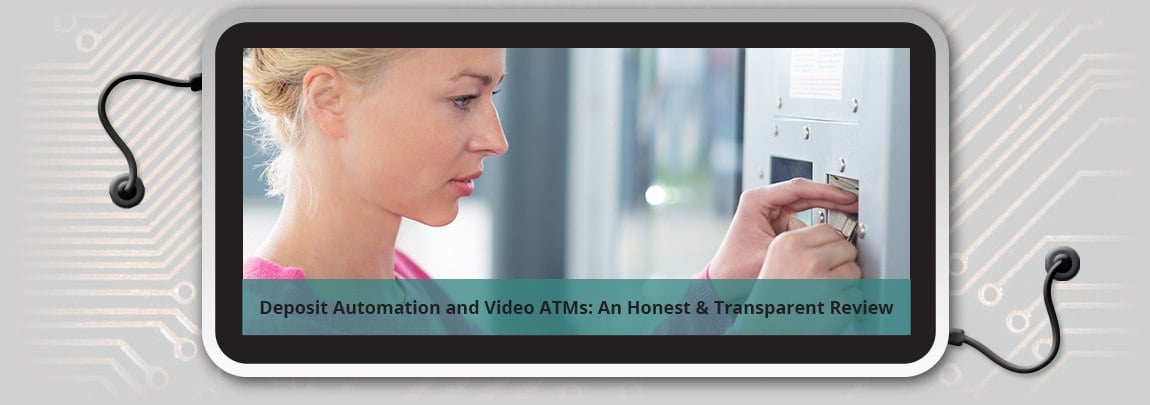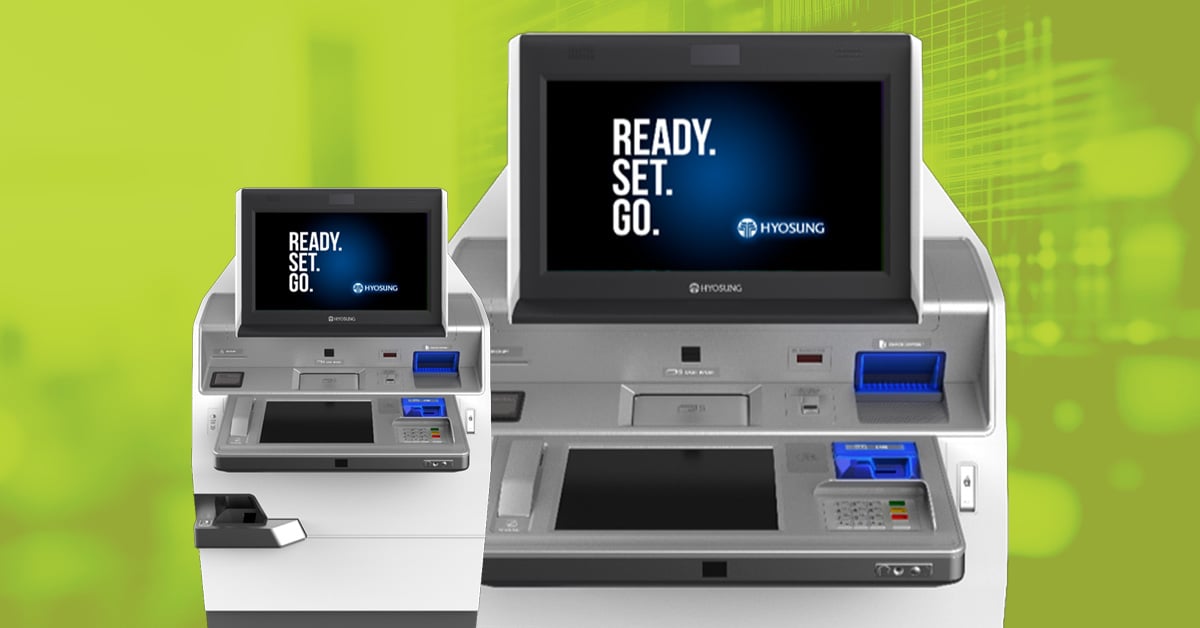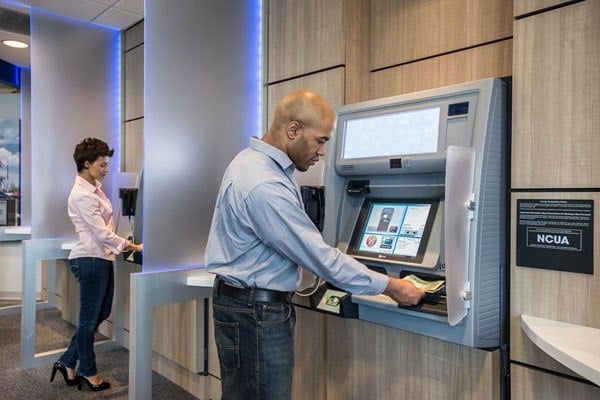Deposit Automation and Video ATMs: An Honest Review
Technology has revolutionized the banking industry, leaving financial institutions wondering which advancements make sense for their unique needs....
6 min read
 Sean Farrell
:
Jun 9, 2025 9:15:00 AM
Sean Farrell
:
Jun 9, 2025 9:15:00 AM

If you're managing your own ATM fleet today, you probably didn't choose that path because you enjoy pain. You chose it because at the time, it made sense. Maybe it was the standard model, so you decided to buy the asset, depreciate it, and run it for a decade or more. Maybe you didn't know there was another option.
Or maybe you just figured, “How hard can this be?”
But now, you’re feeling it.You feel like you're constantly plugging holes in the dam. Like every month brings a new invoice, a new surprise, or another fire to put out. You've got a team that's stretched thin, spending too much time chasing down blinky lights instead of focusing on your members. You're waiting days for answers to problems that should be simple. You just want it to work, so you can move on to the parts of the job that actually move the needle.
You're not alone in that.
This is the part of the conversation where outsourcing starts to feel like it might be worth exploring. But it's also where the questions start stacking up.
How do you know if ATM outsourcing is actually a better fit?
What will it fix, and what won't it?
What's the cost of ATM outsourcing, both financial and strategic?
And how do you make sure you're not trading one set of headaches for another?
That's what we'll unpack in the rest of this section. Not a sales pitch. Just straight answers to the most common questions we hear, and the things we believe every institution should consider before they make the leap.
Outsourcing your ATMs isn’t a silver bullet. But for the right kind of institution, it can solve real problems. If you’re a smaller bank or credit union, for example, or you’ve only got a few terminals in the field, you might not have the people or time to manage all the moving parts that come with ATM operations.
You're not trying to build a center of excellence around your ATMs.
You just want them to work.
In those cases, outsourcing can give you something simple that actually runs. You get a consistent cost structure. That doesn't always mean cheaper month to month, but it does mean predictable. You know what it’s going to cost you over time, and you don't have to burn hours every week chasing vendors or managing compliance.
And that matters, because the compliance work doesn't slow down. You're constantly trying to stay ahead of Windows updates, PCI requirements, and everything else that falls on your plate if you're doing it yourself. If you're not careful, something gets missed and you’re the one answering for it. When done well, outsourcing shifts that burden and gives you some breathing room.
It also helps when your team is better suited to other priorities. If you've got staff who should be focused on members but instead they're calling armored cars or dealing with service tickets, you're not getting the best return on that labor. Outsourcing can let your people step away from the mechanics and focus on what they were actually hired to do.
And for some institutions, outsourcing is just a better strategy. If you believe that technology cycles are going to keep getting shorter, and that you'll need new equipment every few years to stay competitive, then outsourcing gives you that flexibility. Instead of buying and hoping you picked the right thing for the next decade, you're on a refresh schedule that keeps you current.
There's no one-size-fits-all answer. But if your ATM environment is more of a headache than a differentiator, outsourcing might help you simplify things and redirect your time and energy to what matters most.
A lot of people hear "outsourcing” and think it means once you hand off your ATM fleet to an outsourced partner, the headaches and internal oversight requirements will vanish.
Now, that would be amazing, but that's not quite how it works in reality. In fact, one of the biggest misconceptions we run into is this idea that once someone else is managing your ATMs, everything will just work. But the truth is, some programs are rigid. They don't give you much room to adjust as your needs change, and that can put you behind the curve fast.
If you're in a model that locks you into a set technology or refresh schedule, and the industry moves faster than your contract does, you're stuck. You might be spending a fixed amount, but that doesn't mean you're getting what your members actually need three or five years down the line.
There's also the risk of choosing a partner who isn't equipped to support what you're trying to do. If all you need is basic cash dispense, that's one thing. But once you move into deposits or core integration (anything more complex) that's a different level of support. Some outsourcers will tell you they can handle it all, but when it comes time to deliver, they fall short. And you don't always find that out until you're deep into a contract.
Compliance is another place where assumptions can get you in trouble. Just because someone else is managing the environment doesn’t mean you’re off the hook. You’re still responsible if something falls out of spec during an audit or a regulatory exam. If your provider isn't doing their job, you're the one that pays for it. So even if you outsource, you still need to inspect. You still have to manage the relationship.
The same goes for service. Some providers handle everything themselves. Others outsource maintenance to a third party. If you're not clear on who's actually showing up when there's a problem, you could end up in a loop of finger-pointing that feels all too familiar.
Outsourcing can relieve a lot of the operational burden, but it doesn't eliminate responsibility. You're still accountable. You just need to make sure the partner you choose knows what they're doing and can actually support the direction you're headed.
At QDS, we spend most of our time working with institutions that choose to own and operate their ATM channels. That's where we've built our depth, by helping clients get more control, more functionality, and more long-term value out of their investments.
But that doesn't mean we're anti-outsourcing. In fact, when it's the right fit, we're the first to say so. As we've talked about already, there are real advantages for the right kind of institution.
If you're smaller, if you're only running a few terminals, or if you just don't want to carry the operational load, outsourcing can simplify a lot. Especially when your needs are basic, it's a clean solution that frees up internal bandwidth.
Also, if you see value in regular upgrades and don't want to own depreciating hardware, outsourcing gives you a way to stay on that curve without locking yourself in for the next 20 years.
So no, we don't walk into every room waving the outsourcing flag. But when the conditions are right, and the business case is there, we'll say that out loud. Because our job isn't to steer you toward one model or the other. It's to help you make the decision that fits your strategy.
Outsourcing your ATMs isn't just a financial decision. It's a strategic one. And if you’re going to put that much operational weight in someone else's hands, you have to know what to look for… and what to ask before you sign anything.
Here's where we suggest you start:
How do you handle compliance updates, and how often?
This matters more than it used to. If your provider isn't on top of PCI, Windows updates, and other security requirements, the risk doesn't disappear. It just shifts to you. Ask how they keep you in compliance, and what their update schedule looks like.
Who's actually doing the service?
Are they using their own team, or outsourcing maintenance to someone else? You want to know who’s going to show up when something breaks, and whether they’ve got the authority to actually solve the problem.
Do you have real experience with the functionality I need?
If you're just running cash dispense, almost anyone can make that work. But if you're talking about deposits, core integration, or anything beyond the basics, that's a different level of complexity. Ask how many clients they've supported with that same setup, and get specific.
What happens when something goes wrong?
Ask them to walk you through the process. Is there a single point of contact? Do you get a direct phone number? What does after-hours support look like? You need to know who's on the hook, and how quickly they can act.
These aren't trick questions. They're the basics. But asking them early can save you from the slow realization that the partner you picked wasn't ready for the job. Because the reality is, even if you outsource, you're still responsible. You still answer to your leadership, your examiners, your members. The right partner understands that and acts accordingly.
So if you're going to hand over the reins, make sure you trust who's holding them. That's how you make outsourcing work. And that's what we'd want for you, whether we're your partner or not. Ready to start a conversation? Reach out and let us know.

Technology has revolutionized the banking industry, leaving financial institutions wondering which advancements make sense for their unique needs....

Talk to any banking leader right now, and you'll likely hear the same thing: “The ground is shifting under our feet. Staffing is harder. Customer...

1 min read
As market demand for Interactive Teller Machines (ITMs) continues to rise, many financial institutions are evaluating the role of these devices in...